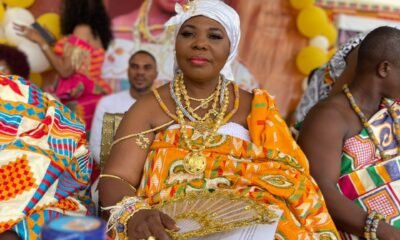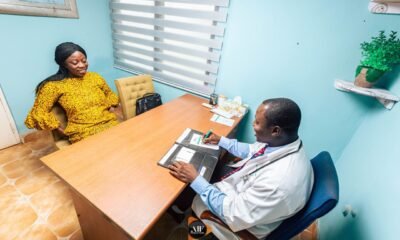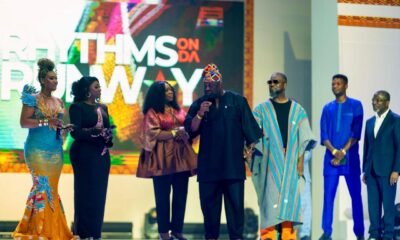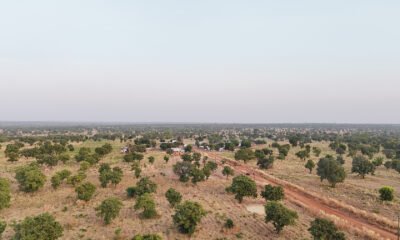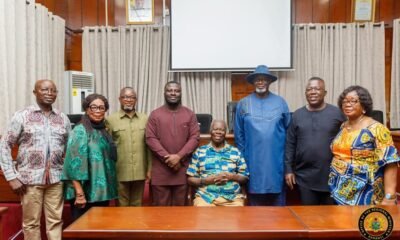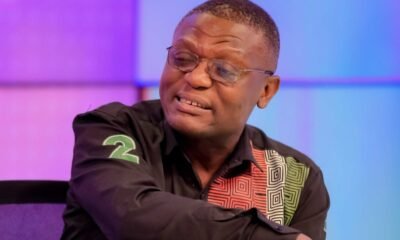Profile
Ayorkor Botchwey’s rise to top of Commonwealth, a major feat for Ghanaian diplomac
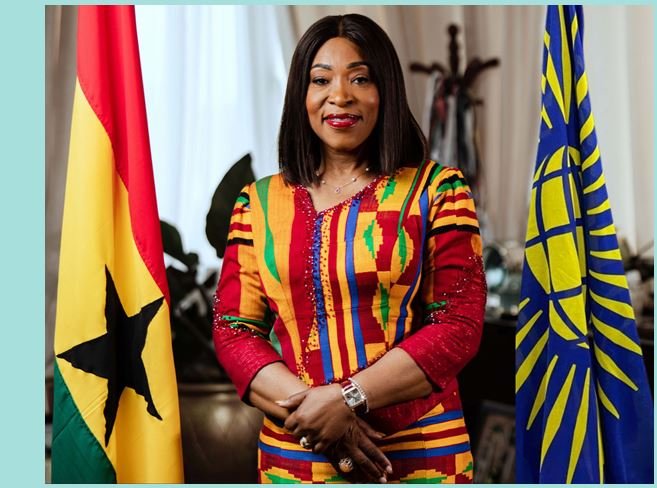
Shirley Ayorkor Botchwey
It was a great moment to savour on Monday when hundreds of Ghanaians welcomed Ms Shirley Ayorkor Botchwey, the newly elected Secretary-General of the Commonwealth.
Her arrival momentarily halted operations at the Kotoka International Airport (KIA) when she stepped out from the plane in the company of President Akufo-Addo.
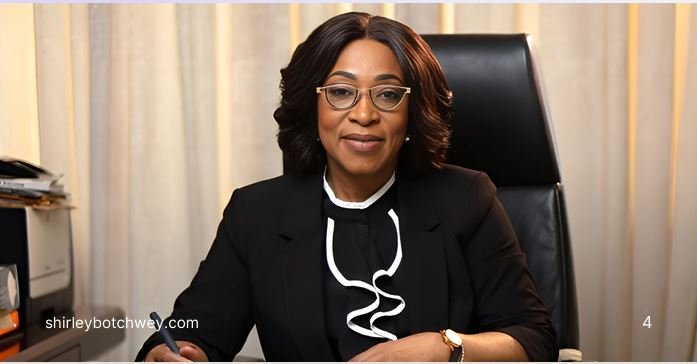
Among the large crowd to welcome her were representatives of the Ga Mantse, Nii Teiko Tsuru II, Ministers of State, Members of Parliament, New Patriotic Party (NPP) supporters and family members.
Addressing the crowd, the newly elected Secretary-General of the Commonwealth, Ms Shirley Ayorkor Botchwey, has promised to provide the needed leadership to combat climate change which presents a clear existential threat to all.
That, she hopes to achieve by working closely with member states and other multilateral institutions.
“I shall harness opportunities for transformation and enhance our global voice,” she stated.

The exercise was held in Apia, Samoa where she was elected as the Secretary-General of the Commonwealth.
She pledged to build on the work which had been done by the staff of the Secretariat and their partners which had made it possible for the Commonwealth to open new chapters in the shared journey towards deepening democracy, peace, prosperity and economic progress.
The Secretary-General elect also said the Commonwealth with 56 countries had a combined population of 2.7 billion people, with 60 per cent being young people, with 33 out of the 56 being small islands developing states and small states, stressing that, “It is diverse and I’m inspired by the resilience of our member states. We come from different nations and cultures, but we share a Commonwealth of values.”
Additionally, she said her vision was to build on these strengths, promote trade and ensure education, skills training, development and innovation for the teeming numbers.
The election was held at the 27th Commonwealth Heads of Government Meeting (CHOGM) in Apia, Samoa, held on October 21-26, 2024.
Ms Botchwey contested against Joshua Setipa of Lesotho and Dr Mammadou Tangara of the Gambia.
This makes Ms Botchwey the first African woman and Second African national to hold this prestigious position.
She would succeed Baroness Patricia Scotland of the United Kingdom on April 1, 2025 embarking on a five year term as a Secretary-General.
Ms Botchwey brings to the role an impressive background as a lawyer, diplomat, and communication professional.
She has served as Ghana’s Minister of Foreign Affairs and Regional Integration for eight years during which she led Ghana’s notable two-year tenure on the UN Security Council.
Her service includes chairing the ECOWAS Council of Ministers for two terms (2020-2022), four terms as a legislator (2004- 2020), and membership in the ECOWAS parliament.

In campaigning for the position, Ms Botchwey proposed six areas to reposition the organisation to respond to the expectations of the 2.7 billion people across the Commonwealth for a decent and fulfilling life.
These were to enhance democracy; strengthen Commonwealth values and realise the democratic dividend; and increase trade and investment cooperation.
The rest are promoting youth, education, skills, innovation and startups; enhancing advocacy in mitigating the impact of climate change, especially on small Island developing states and small states; as well as effectively managing resources for an effective Commonwealth institution.
President Akufo-Addo described Ms Botchwey’s election as an honour that required the support and prayers of all Ghanaians.
Ms Botchwey, he noted, was the first African woman to lead in the history of the organisation, stressing that it was not going to be an easy task because of where we are in human history, with a lot of difficulties ahead.
“But I have absolutely no doubt that you have the qualities necessary to enable you to succeed as Secretary General of the Commonwealth,” President Akufo-Addo stated.
President Akufo-Addo further noted that it was the qualities of competence, hard work, diligence, honesty, and of commitment that drew the massive global support for Ms Botchwey’s candidature for the prestigious office.
“She’s done a yeoman’s job for us as Foreign Secretary. Foreign Secretary, Chairperson of the ECOWAS Council of Ministers, and several other important international assignments have been very well delivered by this… I still call her a young lady,” he said.
“Let’s all stand together behind her and push her to do a very good job for our country. She now flies the flag of Ghana on the global stage in a way which has not been done since our late, revered diplomat, Kofi Annan, who was Secretary General of the United Nations,” he concluded.
Ms Botchwey has since her election received congratulatory messages as well as well-wishes from friends around the world.
The well-wishers included President Nana Addo Dankwa Akufo-Addo, Vice President, Dr Mahamudu Bawumia, AU High Representative for Silencing the Guns in Africa, Dr Mohamed Ibn Chambas, Nigeria’s president, Bola Ahmed Tinubu, and outgoing Secretary-General, Baroness Patricia Scotland.
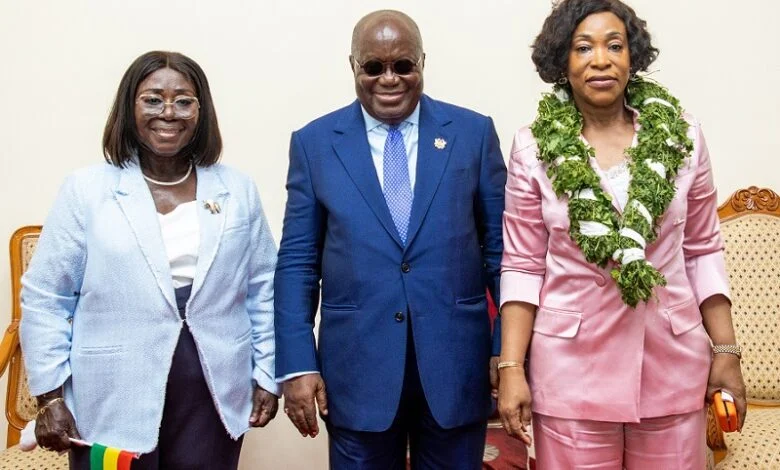
President Akufo-Addo, in a Facebook post, praised Ms Botchwey’s character and dedication to service. Ms Botchwey was her deputy when he served as Foreign Minister in the President J.A Kufour-led government.
“For years, I have watched her serve Ghana, Africa and the international community with unshakeable commitment and grace,” he stated.
The President expressed confidence that her leadership would guide the Commonwealth toward “a future of hope and unity.”
Vice President, Bawumia, took to social media to share his congratulations, writing: “Minister Shirley Ayorkor Botchwey, I am happy with the news about your election as the new Secretary-General of the Commonwealth. Congratulations on making Ghana proud. Keep shining, and I know you will excel as always.”
According to a Ghana News Agency (GNA) report, Dr Chambas described her election as “a victory for Ghanaian diplomacy.”
Speaking from an AU Retreat in Abidjan, he emphasised that this achievement represents not just personal success but also recognition of African women’s capabilities.
Having worked on Ms Botchwey’s campaign in the Caribbean and Pacific Island countries, he expressed particular satisfaction with the outcome.
Nigeria’s President, Bola Tinubu, through his adviser on Information and Strategy, highlighted Ms Botchwey’s extensive career in Public Administration and Foreign Affairs as perfect qualifications for the role.
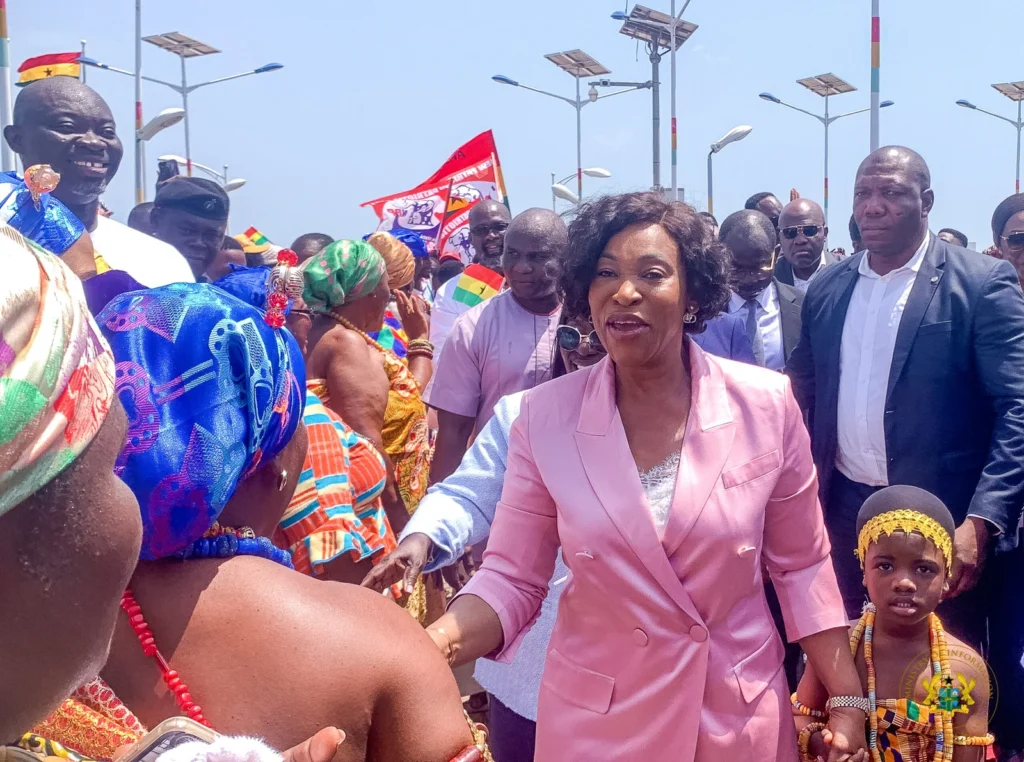
He expressed optimism about working with her to advance the Commonwealth’s vision and strengthen intra-commonwealth trade, particularly emphasising support for an African bid for permanent representation at the UN Security Council.
The outgoing Secretary-General, Baroness Patricia Scotland, warmly welcomed her successor in a social media post, stating: “It is my honour to pass the baton to my dear sister… She will be uniquely blessed, as I have been, to hold this office and serve our precious Commonwealth.”
By Jemima Esinam Kuatsinu
Profile
Prisca Abah: Ghana’s modelling powerhouse

Ghanaian model, philanthropist and advocate, Prisca Abah, who is known for her contributions to the fashion industry, is strutting her stuff on higher levels.
She was recently selected as one of the models for the Big8 Girls Project, an initiative by Clinton Samuel to celebrate influential African models.
The project consisted of three episodes: the Bio Shoot which highlighted Abah’s professionalism through a corporate-themed photoshoot; Afrodeity which focused on showcasing her confidence and artistry, celebrating the African divine feminine and royalty which presented Abah as a symbol of African cultural pride, embodying strength and elegance.

The Big8 concept, produced by Clinton Samuel, intentionally highlights and celebrates the strongest and most influential models on the African continent, congratulating their steadfastness and contributions to the African fashion industry, even as they grind and win in other aspects of life.
The Big8 sets hierarchy and high standards in the African fashion and modelling industry, crowning eight of them with the ‘Top Model’ status as the leading female models in Ghana at the moment.
“Working with these fiery women will surely ignite more creative minds and stir the pot of positive competition,” said Clinton.
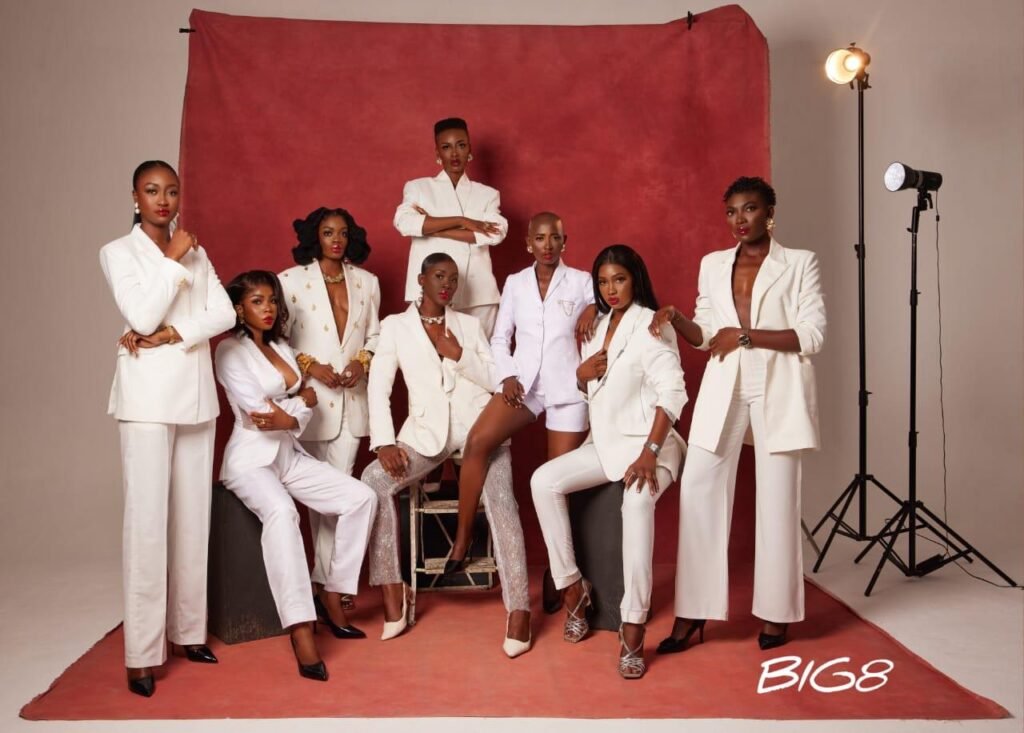
Abah’s early life and career
Prisca Abah began her modelling career in 2013, achieving her first notable milestone in 2014 with an editorial shoot for 5-Star International Modelling Agency. In 2015, she made her runway debut at the Ghana Fashion Awards.
From 2016 to 2018, Abah participated in major African fashion events such as Glitz Africa Fashion Week, Mercedes-Benz Fashion Week in Johannesburg, and Rhythms on the Runway.
During this period, she received accolades, including the “Best Female Model of the Year” and spoke as a UN Ambassador for Sustainable Development Goal 12 at the Sustainable Rice Platform Conference.
International recognition and pageantry
In 2022, Abah expanded her reach by entering the pageantry world. She placed as the first runner- up at the Beauty of Africa International Pageant and represented Ghana at the Miss Globe World Finals, where she earned the title of Miss Globe Africa 2022.

Philanthropy
Abah founded the Palins Foundation, a non-profit organisation, aimed at empowering women and youth through initiatives in education, skills training, and personal development.
Awards and collaborations
In 2023, Abah received the Best Model of the Year award at the Time Ghana Arts and Entertainment Awards. She has collaborated with leading designers such as Charlotte Prive and Ejiro Amos Tafiri, further solidifying her influence in African fashion.
Legacy
Prisca Abah is recognised not only for her contributions to the fashion industry but also for her philanthropic efforts. Her journey serves as an inspiration to young Africans, encouraging them to pursue their dreams while giving back to society.
By Edem Mensah Tsortorme
Profile
Juventus Duorinaah, Ghana’s first deaf Lawyer
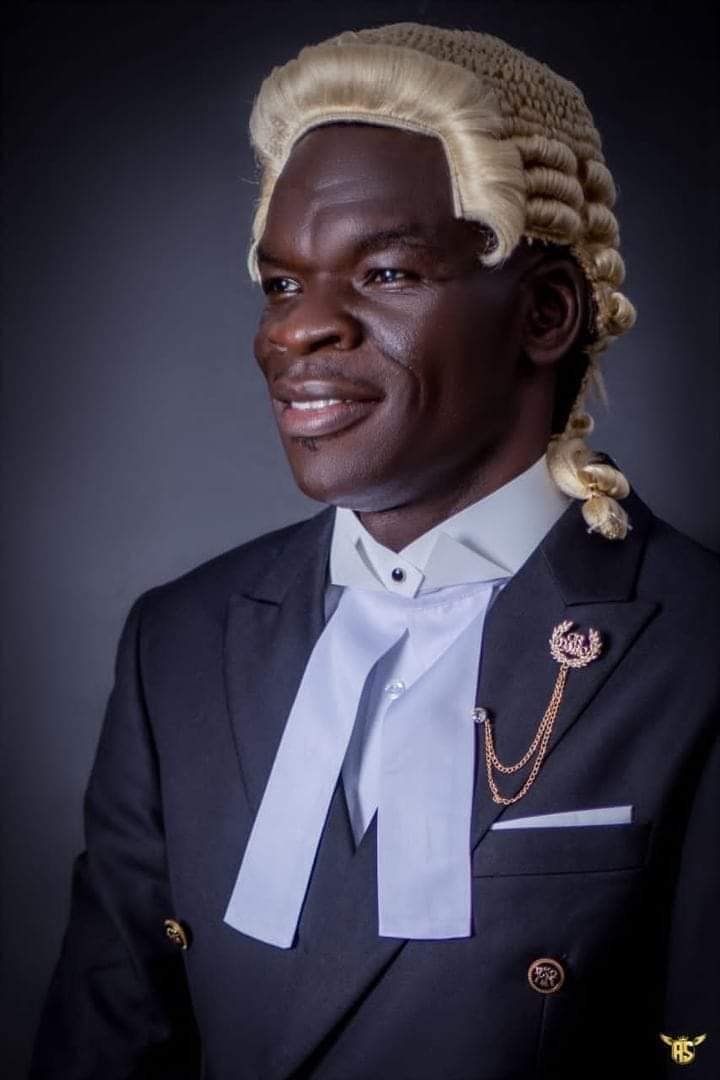
In a landmark moment for Ghana’s legal landscape, Juventus Duorinaah Esq., has etched his name in history as the country’s first lawyer with a hearing impairment.
His journey from a humble background to breaking barriers in the legal profession serves as a powerful inspiration for countless individuals in the disability community, proving that determination and resilience can defy societal expectations and create pathways to success.
For Juventus, the recognition as Ghana’s first deaf lawyer feels surreal.
“It feels like a dream,” he reflects, acknowledging the stereotypes surrounding deafness and the humble background from which he hails.
Juventus’ passion for law sparked in 2008 while seeking admission to the University of Ghana (UG). Although he initially faced challenges due to the nature of the application process, the help of his older brother and his determined spirit led him to pursue a Bachelor of Arts degree in 2012, followed by a Master of Laws at Cardiff University in 2014.
His passion for the study of law became highly intense when he had to study alongside qualified lawyers from several jurisdictions, even though he did not have a legal background. Here, he faced the unique challenge of studying without sign language interpreters, relying instead on a palantypist to transcribe lectures.
Juventus’ role model was his professor and mentor, Professor Luke Clement, who profoundly inspired him in shaping his understanding of law and human rights.
He remembers Prof. Thomas Stephens from the University of Ghana School Of Law, who inspired him with his way of dressing, in-depth knowledge of the law and engagement with students.
He recounts the enormous challenges he encountered during the COVID-19 pandemic in 2020, when lectures moved online, and Dr Stephen’s tremendous support to ensure things moved quickly and smoothly for him.
“I also had the chance to have a few classes with the Dean himself, Prof. Raymond Atuguba. He taught the course such that some of us never felt scared as other lecturers made the course,’ he recalled.
Juventu’s academic journey was fraught with challenges, particularly in communication.
The year 2007 was the last time he studied with deaf peers. He was often the only deaf person in his classes throughout the following years of his education, which made interaction with peers difficult.
Despite these hurdles, he remained high-spirited, studying late into the night and seeking help from kind classmates when necessary.
Reflecting on his academic experience at UG, he connected his affection for the university to his older brother, who is also an alumnus. He felt inspired to be a student of the premier university, saying he would choose the University of Ghana any time, any day, if given the chance to further his studies or work.
The University Of Ghana School Of Law, along with its Dean, Professor Raymond Atuguba, the Director of Legal Education of the Ghana School of Law, Yaw Bramiah Oppong, and his capable team, including the Registrar and Deputy Registrar of the Ghana School of Law and the Office for Students with Special Needs (UG), made significant contributions to his journey.
Prof. Atuguba acknowledged Juventus’ achievement as evidence of the university’s commitment to Diversity, Equity and Inclusion.
Commenting on how the school accommodated his special needs, Prof. Atugugba explained that ‘In the case of Juventus, we worked closely with him to understand and address his special needs, ensuring he had access to the teaching and learning resources in the appropriate formats that would support his academic journey.
Professor Atuguba noted that Juventus’s journey is just beginning, and the future holds promise for him and the many lives he aims to touch along the way.
Juventus’s close friend, Ida Esi McOwusu Esq., described her first encounter with Juventus as ‘intriguing.’ “My first meeting with Juventus was in class, where he sat right in front of me in first year,” Ida reveals. She was intrigued and wanted to find out more about him, especially how Juventus navigated his way to this level. “I got closer and we became friends from there,” she remarked.
Mr Francis Kweku Essel, Juventus’ interpreter, shed light on the primary challenges he faced in carrying out his job, particularly the complex nature of legal terminology and concepts. This validates Ida’s comment on the interpreters’ lack of legal background as a challenge Lawyer Duorinaah encountred.
Juventus dreams of becoming a judge and aims to enhance justice delivery while serving as a role model for young people with disabilities.
He is currently mentoring a group of young deaf students interested in pursuing law, hoping to pave the way for future generations. What’s next for Lawyer Juventus? His next step is to complete his pupilage, after which he can decide further his legal career.


